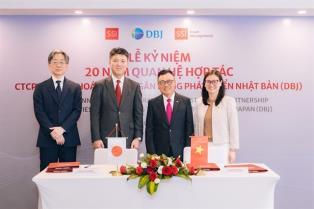These changes are designed to address long-standing barriers that have limited foreign participation and delayed the introduction of new products.

HÀ NỘI — The Ministry of Finance is pushing ahead with a series of policy reforms aimed at drawing in greater foreign investment, increasing the volume of tradable securities and facilitating Việt Nam’s upgrade to emerging market status.
These changes, embodied in Decree No 245/2025/ND-CP, are designed to address long-standing barriers that have limited foreign participation and delayed the introduction of new products.
By aligning regulatory frameworks more closely with international practices, the Government expects to create a more transparent, efficient and investor-friendly market environment.
Under the new decree, the criteria for foreign investors to be classified as 'professional investors' have been aligned more closely with international norms.
Documentation requirements have been adjusted to better match foreign legal and regulatory frameworks, making it simpler for overseas institutions to participate in private placements and initial public offerings (IPOs).
One of the more significant changes is the reduction in time between approval of listing by the stock exchanges and the commencement of trading.
Previously, this period was set at 90 days. Now the new decree cuts this to 30 days. Officials estimate this move could reduce the overall time to bring new securities to market by three to six months.
The decree also removes provisions that allowed individual company charters or general shareholder meetings to impose foreign ownership limits below those permitted under law or international commitments.
Companies that previously notified lower caps may now increase them, perhaps gradually, to align with legal ceilings. This is expected to improve foreign investors’ rights and incentives.
Additionally, procedures for foreign investors to get securities‐trading codes will be streamlined.
For example, after applying for a trading code via the online system (ESTC), investors will no longer need to submit physical paperwork to the Vietnam Securities Depository Centre (VSDC) to receive their official registration certificate.
Other measures include easing requirements around opening accounts for indirect investment and payment accounts via banking regulations.
For fund managers, the decree offers greater operational flexibility. Under certain conditions, foreign funds may hold two trading codes, giving them more options to structure investment strategies.
At the same time, the reforms establish a legal basis for a centralised counterparty clearing mechanism, a critical upgrade to Việt Nam’s settlement infrastructure.
The new framework authorises a subsidiary of VSDC to act as the central counterparty, taking responsibility for clearing and settlement obligations in accordance with the Securities Law No 56/2024/QH15.
Transparency standards are also being strengthened. Listed companies and other public entities will be required to provide disclosures in both Vietnamese and English under a phased roadmap, ensuring that foreign investors have access to timely and accurate information on par with domestic market participants.
Regulators view this as an essential step toward improving corporate governance and meeting the expectations of global institutional investors. — BIZHUB/VNS





